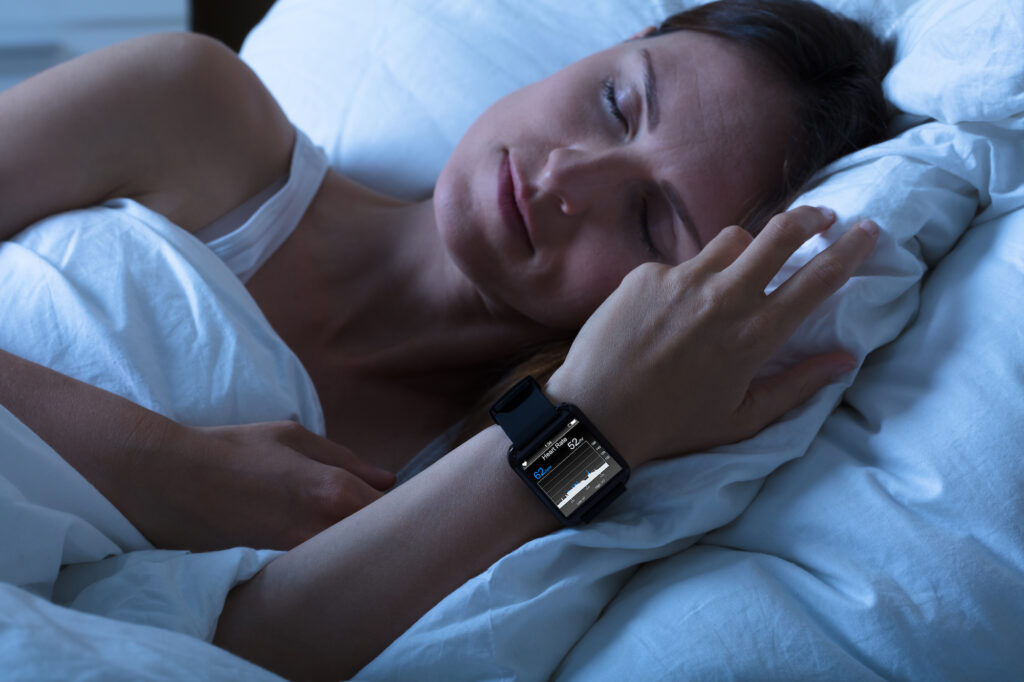2024 Projected to Be Biggest Year Yet for Sleep Industry

How much would you pay for a good night’s sleep? For many people, the answer is “a lot.” Americans are desperate for better sleep — and they’re spending more and more money to get it.
The “sleep economy,” which includes everything from mattresses to wearable devices to supplements and more, is booming and is projected to reach a record high of $585 billion for 2024. For example, the global sleep apnea devices market, one subset of the sleep economy, is estimated to be worth $13.5 billion in 2024, and it’s expected to keep growing.
When you look at how many people struggle with sleep, it’s not surprising they’re willing to try all kinds of solutions. More than a third of U.S. adults slept worse in 2023, according to a survey by Sleepfoundation.org. At the same time, there’s more awareness of how poor sleep impacts physical and mental health. A decade ago, sleep deprivation was deemed a public health epidemic, and many studies since have confirmed how crucial sleep is. These factors seem to be driving an openness and willingness to try new solutions.
Much of the growth in the sleep market is driven by new tech products: venture capital funding for sleep tech nearly doubled between 2017 and 2021. One-third of Americans have tried a sleep tracker, according to a 2023 American Academy of Sleep Medicine survey. These devices, which typically run between $200-$300, monitor physical signs, such as heart rate and body movement overnight. People can use this information to try to optimize their own sleep. For example, the tracker might tell them they consistently get more sleep if they avoid alcohol before bed or wear an eye mask. The majority of those who have tried a sleep tracker say they’re helpful and have inspired them to change their behavior.

Meanwhile, Time magazine reports that the U.S. mattress industry doubled between 2015 and 2020.Smart mattresses, which generally cost $2,000-$5,000, are a growing subset of that market. These futuristic beds offer a range of features, such as the ability to monitor both a person’s body and the sleep environment. Some can even make autonomic adjustments in temperature or firmness if they sense that these factors would optimize someone’s sleep.
Other novel sleep products include eye masks with unique features, weighted blankets, specially designed pillows for every sleep position, and much more. If you can think of an item related to sleep, there is probably a company (or twenty) making innovations to that item to fine-tune its performance.
Of course, the reasons people toss and turn at night are broad, including stress, diet, and overall health. At the same time, poor sleep can worsen all those factors, so there’s a cyclical relationship between sleep quality and how one spends their days. Developing healthy sleep habits can go a long way toward getting better rest before investing in specialized sleep gear.
Still, one thing is clear: individuals and companies alike are betting on the hope that with the right products and services, we can all sleep more soundly.
Got a hot tip? Pitch us your story idea, share your expertise with SleepFoundation.org, or let us know about your sleep experiences right here.
References
8 Sources
-
Axio. (2024, January 13). The big business of sleep. Erica Pandey & Carly Mallenbaum., Retrieved Jan 24, 2024 from
https://www.axios.com/2024/01/13/sleep-tech-supplements-bedding-healthy -
Statista. (2023, December 1) Size of the sleep economy worldwide from 2019 to 2024., Retrieved Jan 24, 2024 from
https://www.statista.com/statistics/1119471/size-of-the-sleep-economy-worldwide/ -
Roots Analysis Business Research and Consulting. (n.d.). Sleep Apnea Devices Market., Retrieved Jan 24, 2024 from https://www.rootsanalysis.com/reports/sleep-apnea-devices-market.html
-
American Association for the Advancement of Science. (2014, March 14). Sleep Deprivation Described as a Serious Public Health Problem. Ginger Pinholster., Retrieved Jan 24, 2024 from
https://www.aaas.org/news/sleep-deprivation-described-serious-public-health-problem -
Scott AJ, Webb TL, Martyn-St James M, Rowse G, Weich S. Improving sleep quality leads to better mental health: A meta-analysis of randomised controlled trials. Sleep Med Rev. 2021 Dec;60:101556. doi: 10.1016/j.smrv.2021.101556. Epub 2021 Sep 23. PMID: 34607184; PMCID: PMC8651630.
https://pubmed.ncbi.nlm.nih.gov/34607184/ -
Bitters Turi, J. (2021, September 9). Inside Supermoon Capital’s Big Dreams For Its Sleep Tech Focused Fund. Crunchbase News., Retrieved Jan 24, 2024 from
https://news.crunchbase.com/startups/inside-supermoon-capitals-big-dreams-for-its-sleep-tech-focused-fund/ -
American Academy of Sleep Medicine. (2023, November 15). One in three Americans have used electronic sleep trackers, leading to changed behavior for many., Retrieved Jan 24, 2024 from
https://aasm.org/one-in-three-americans-have-used-electronic-sleep-trackers-leading-to-changed-behavior-for-many -
McKinney, K. (2020, August 6). Why We Buy In to the Big Business of Sleep. TIME., Retrieved Jan 24, 2024 from
https://time.com/5876810/sleep-products-and-treatments/













































































